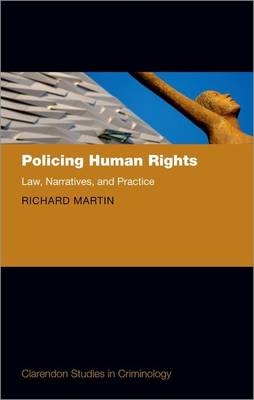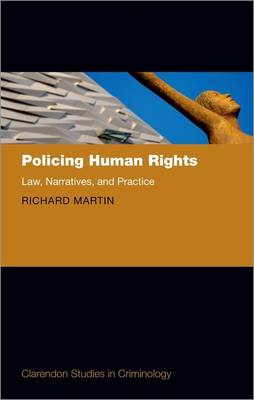
- Afhalen na 1 uur in een winkel met voorraad
- Gratis thuislevering in België vanaf € 30
- Ruim aanbod met 7 miljoen producten
- Afhalen na 1 uur in een winkel met voorraad
- Gratis thuislevering in België vanaf € 30
- Ruim aanbod met 7 miljoen producten
Zoeken
Omschrijving
Human rights go to the heart of policing in democratic societies. Across the world, police are now governed by human rights principles and increasingly detailed standards - from arrest and detention to the regulation of protest and the use of lethal force. Yet there has been remarkably limited research examining human rights as a central feature of contemporary police reform, rhetoric and regulation. Policing Human Rights breaks new ground by offering one of the first sociologically inspired and empirically grounded accounts of how officers encounter and experience human rights law in their everyday work. The substantive insights and associated arguments of the book are based on unprecedented fieldwork with Police Service of Northern Ireland, including interviews and focus groups with over one hundred police officers, from over twenty police stations and five departments. Adopting an interdisciplinary style of analysis that draws on sociology, anthropology and organizational studies, the book takes the reader on a tour of four sites of policing to expose how and why human rights law comes to be socially constituted, organizationally conditioned and routinely interpreted and applied by police officers. The book offers an insight into the function of human rights law in modern policing, exposing the visions and values police officers' express in their daily narratives, sensemaking and practices.
Specificaties
Betrokkenen
- Auteur(s):
- Uitgeverij:
Inhoud
- Aantal bladzijden:
- 448
- Taal:
- Engels
- Reeks:
Eigenschappen
- Productcode (EAN):
- 9780198855125
- Verschijningsdatum:
- 10/08/2021
- Uitvoering:
- Hardcover
- Formaat:
- Genaaid
- Afmetingen:
- 150 mm x 221 mm
- Gewicht:
- 657 g

Alleen bij Standaard Boekhandel
+ 354 punten op je klantenkaart van Standaard Boekhandel
Beoordelingen
We publiceren alleen reviews die voldoen aan de voorwaarden voor reviews. Bekijk onze voorwaarden voor reviews.







